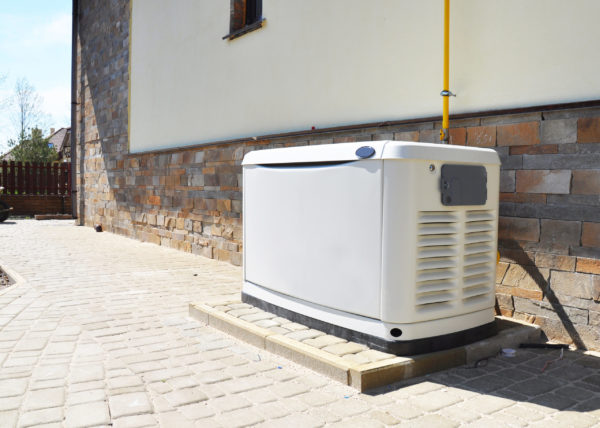
When your power goes out, a generator can keep your home’s air conditioning unit running. However, not just any generator will do. You need to make sure that the generator you select can provide enough power to run your AC unit.
If you’re considering purchasing a generator, there are a few things you need to keep in mind to make sure you get the right size.
Determine Power Usage
Various types of air conditioners use different amounts of power. Central air conditioners tend to use the most power at an average of around 3,500 watts. Large window units typically use about 1,400 watts, while smaller window units can use as little as 500 watts.
However, these are only trends in power usage, and your particular unit may use more or less power. The only way to determine exactly how much power your air conditioner uses is to check the wattage for your specific unit. You can find this information in the owner’s manual or on the nameplate of the AC unit.
If you don’t have your owner’s manual or the nameplate isn’t easily accessible, you can still determine the power usage of your air conditioner. Start by turning off all other appliances and devices in your home that use electricity. Then, turn on your AC unit and use a wattmeter or kill-a-watt device to measure the power usage. Make a note of this number.
Choose a Generator
Once you know how much power your cooling system uses, you can select a generator that will provide enough power.
However, it’s important to note that you can’t just purchase any generator that produces the amount of power used by your AC unit. You need to make sure the generator can handle the startup power requirements of your air conditioner. Startup power requirements are typically two to three times the running power requirements.
So, if your air conditioner has a startup power requirement of 3,000 watts, you’ll need to purchase a generator that produces at least 3,000 watts.
If you’re not sure how much power your AC unit uses to start up, it’s always better to choose a generator that provides more power than you need. This will ensure that your air conditioner will run smoothly and without interruption.
Other Considerations
When selecting a generator to use with your AC unit, there are a few other things you need to keep in mind. For one, you’ll want to make sure the generator can power any other appliances you want to keep running during a power outage.
For example, you may want to keep a refrigerator or freezer running in addition to your cooling system. If so, then you’ll need to factor in the power usage of these appliances when choosing a generator. If your air conditioner has a startup power requirement of 3,000 watts and your refrigerator has a startup power requirement of 1,000 watts, you’ll need to purchase a generator that produces at least 4,000 watts.
Additionally, you’ll want to make sure the generator you select has enough outlets to power all the devices and appliances you want to keep running. Most standard generators have two to four outlets.
Do All AC Systems Work With Generators?
While most models should be compatible, not all AC systems will work with a generator. If your air conditioner isn’t compatible, you’ll need to purchase a special inverter that can be used in conjunction with a generator.
An inverter will take the power produced by the generator and convert it into the type of power required by your AC unit. This can be a costly investment, so you’ll want to make sure your cooling system is compatible with a generator before making a purchase.
Turn to Our Experts
If you need help determining if your air conditioner is compatible with a generator, Heatwave Heating & Cooling is at your service. As trusted HVAC professionals serving the Amherst area, we’re well-versed in all things air conditioning, heating, and beyond. We also install residential generators and can help you select the right generator for your heating and cooling needs.
Proper maintenance of your air conditioner is essential to make sure it will work properly in the event of a power outage. If you’re due for a tune-up or your AC unit isn’t running as efficiently as it should be, contact us today. We’ll be happy to take a look and get your system back in tip-top shape.

